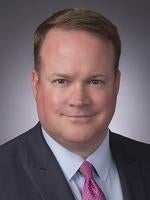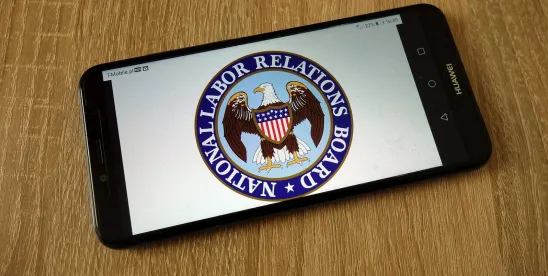Through Board decisions, rule making, and NLRB General Counsel’s (“GC”) memoranda, the National Labor Relations Board (“NLRB” or “the Board”) continues to expand the potential penalties for employers found to have committed unfair labor practices (“ULP”). The shift toward an employee-friendly enforcement scheme has continued with GC Jennifer Abruzzo’s latest memorandum, issued on April 8, 2024, wherein the GC stated her desire to expand the availability of remedies for violations of labor law to even those employees who did not file, or are not identified in, ULP charges.
A Growing Trend
Since being confirmed by the Senate in July of 2021, the GC has issued two dozen memoranda, addressing topics ranging from simple procedural issues to prosecutorial priorities, to her view regarding confidentiality provisions and non-disparagement clauses in severance agreements, to her novel theory that non-compete agreements violate the National Labor Relations Act (“NLRA”). And, as we previously reported, following comments from NLRB Chairman McFerran about her willingness to explore new remedies for unfair labor practice violations, the GC also issued a series of memoranda[1] directing regional offices to be more aggressive in seeking remedies for violations of the NLRA. These previous memoranda primarily addressed expanding remedies available to employees who filed ULP charges, with the GC advising that “Regions should request from the Board the full panoply of remedies available to ensure that victims of unlawful conduct are made whole for losses suffered as a result of unfair labor practices.”
The April 2024 Memorandum-GC 24-04
In General Counsel Memorandum 24-04, issued on April 8, 2024, the GC continued her efforts to increase penalties to employers accused of unlawful practices. Unlike the previous memoranda that primarily addressed remedies available to employees who filed ULP charges, in her newest memorandum the GC has gone much further, instructing regional offices to pursue make-whole remedies for employees allegedly harmed as a result of an “unlawful work rule or contract term,” irrespective of whether or not those employees are identified in an ULP charge.
In the memorandum, the GC states that “the mere recission of an overbroad, unlawfully promulgated, or unlawfully applied rule or contract term” is not enough. Because voiding such rules “does not expunge discipline imposed under those unlawful provisions or retract related legal enforcement actions.” Thus, in her view, such an action falls short of making affected employees whole. Relying on that premise, the GC directed regions to “seek settlements that include make-whole relief for employees who were disciplined or subject to legal enforcement as a result of an unlawful work rule or contract term.” In the GC’s view, remedies for such violations of the NLRA should include, at a minimum, expungement of discipline and backpay.
The GC further explained that because affected employees not identified by a ULP charge may be difficult to ascertain, it may require regions to seek and obtain additional information regarding other affected employees during settlement negotiations, potentially broadening the time and effort required of employers to comply with an investigation, and of course increasing an employer’s potential financial exposure by essentially adding previously uninvolved charging parties.
In cases where a ULP is not settled, the GC directed the regions to urge the Board to ensure all employees who would be affected by discipline for an unlawful rule or policy are made whole. And where an employee pursues an enforcement action based on an unlawful contract term, the GC directed the regions to urge the Board to allow eligible employees to have the employer’s action withdrawn and directed that offending employers pay the affected employees their legal fees and costs in defending against any such unlawful enforcement action.
The GC did provide a small exception to this approach for instances in which the employer is able to demonstrate that the employee’s conduct interfered with the business’s operations, and it was only that interference—not any unlawful or impermissible rule or policy—that resulted in the discipline. This sets a very high bar for employers to demonstrate that their disciplinary actions against employees are warranted, and escape providing expungement of discipline and/or backpay.
Key Takeaways
Because of the GC’s focus on unlawful work rules or contract terms, this new memorandum is particularly concerning for employers in light of other recent changes at the Board.
Recently, what constitutes an unlawful work rule or contract term has been greatly expanded. In August 2023, the NLRB adopted a very employee-friendly standard for determining what work rules are prohibited by the NLRA. And, as we mentioned above—and as we have previously explained here and here—in the GC’s view confidentiality provisions and non-disparagement clauses in severance agreements, as well as non-compete agreements, may be impermissible. This means that even good faith efforts to enact workplace rules, or agree to contractual provisions to protect the employer’s business, could backfire should employees seek protection from the Board.
With this broad approach to what may constitute an unlawful rule or contract provision, the GC’s memo is likely to have wide-sweeping effects on employers. Employers facing a ULP charge may now expect that the remedies will extend far beyond charging parties and employees named in the charge. This could present substantial additional costs for employers. Accordingly, employers should continue to reevaluate their work rules and contract terms with employees and consider whether these rules and contract terms are likely to be interpreted to restrict Section 7 activities.
FOOTNOTES
[1] The GC issued a series of memoranda between September 8, 2021, and June 23, 2022, addressing remedies, including General Counsel Memorandum 21-06, General Counsel Memorandum 21-07, General Counsel Memorandum 22-01, and General Counsel Memorandum 22-06.





 />i
/>i

